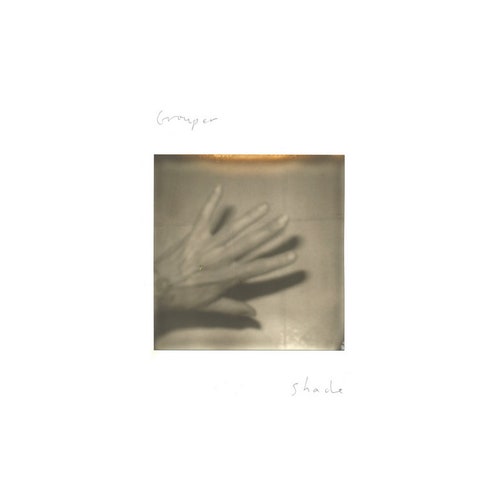Listen to “Unclean Mind” by Grouper
There is a challenge implicit in Grouper’s cobwebs of tape hiss and sighs: How much can be revealed without losing the essence of a thing, an idea, a self? For many years, her music glinted like a penny at the bottom of a murky well, but on 2014’s Ruins and 2018’s Grid of Points, the waters cleared, making way for stark, simple songs consisting largely of just upright piano and voice. It no longer felt like she was trying to burrow beneath the shadows. At their most intimate, her songs offered the illusion that you both shared the same air.
That impression of closeness persists on “Unclean Mind,” a new song from the forthcoming Shade—Grouper’s 12th album, and her first in three years. She has traded the piano for acoustic guitar, and her strumming is pushed high in the mix; you can hear her fingers squeak as they move up and down the neck of her instrument. Her harmonized vocal tracks are panned so that they seem to hover around your head, like a pair of guardian angels. Her songwriting feels brighter and more declarative than ever; the strummed rhythms and vocal melody could almost pass for a page torn from Elliott Smith’s songbook. But a subtle tonal shift has taken place; the texture of the music is marked by a newfound density of detail haloed by tape hiss, like the veins of a leaf held against the light.
As she has on previous occasions, Grouper sings of the pain and doubt of an inscrutable relationship, but also of its ecstasy: “Erratic bodies/Our lovely ruins held inside/Your formal gestures get me high/Such strange behavior.” Grouper’s music has long thrived on the tension between clarity and obfuscation, and here it plays out on a lyrical level too. “Tried to hide you from my unclean mind,” she murmurs; “Put it in a costume/Turning patterns with a perfect line.” It sounds almost as though she is invoking her own visual art, with its impenetrable thickets of black ink. She sings of messages in bottles, of scanning the horizon for signs, as though waiting for some shape to deliver her from her confusion. In all these images of signals and noise, a single two-word plea stands out for its directness: “Rearrange me.”
